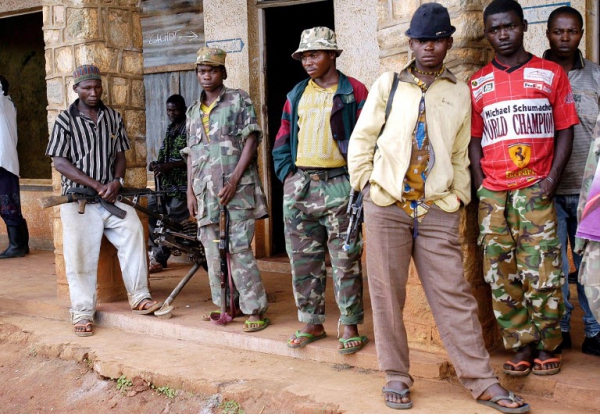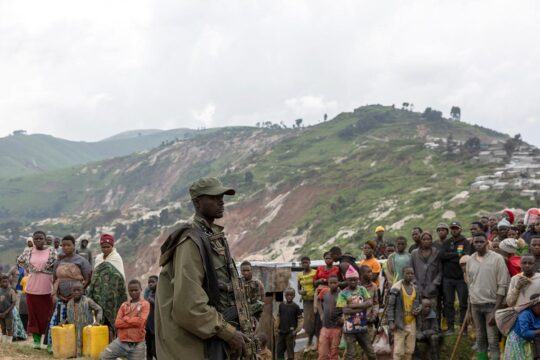In the Democratic Republic of Congo (DRC), a military tribunal has been sitting since Friday April 13, in Kalehe, South Kivu province, for the trial of a former militia leader accused of crimes against humanity and war crimes. Maro Ntumwa, known as “the Moroccan”, is charged with “rape, sexual slavery, looting, attacks against a civilian population and on religious buildings” committed between 2005 and 2007. At the time, the accused was the right-hand man of Bedi Mobuli Engengela, dubbed “Colonel 106”, a former leader of the Mai-Mai militia who has already been convicted by a military court.
After a first day confirming the identity of the accused, the South Kivu military tribunal on April 14 heard objections raised by the defence. Maro Ntumwa’s lawyers argued that a military court did not have jurisdiction because their client was still a civilian at the time of the events in question. They also called for all reports of his questioning to be annulled because, they said, he was at that stage being interrogated without the assistance of a lawyer.
Lawyers for the victims rejected these arguments. They argued – with evidence -- that the accused had said in his hearing that he was a soldier at the time of the events and had later joined the Mai-Mai, one of the militia groups that has been terrorizing people in the eastern DRC for years. They also showed that two lawyers had assisted the accused during initial questioning and that one had unsuccessfully requested his provisional release. The public prosecutor also argued the same way. The military court consequently declared itself competent to try the case and decided to proceed.
A strong signal
“Just the fact that the trial has opened is a victory for the victims,” says Trial International, whose expertise helped the investigations. “This trial is also a chance for the authorities to show their commitment to fighting mass crimes, even when the facts are old and the accused are powerful. Their credibility will depend on the hearings taking place in good conditions, respecting the rights and dignity of all parties.”
For Sylvestre Bisimwa, spokesman for the victims’ lawyers’ collective, the start of trial is a strong signal from the Congolese judicial authorities to perpetrators of crimes against humanity and war crimes in eastern DRC. “It has certainly taken time, but we are pleased that the trial has started, because the victims that we represent are waiting for justice,” he told JusticeInfo. “This is a sign of the judicial authorities’ commitment to fighting impunity. It is a strong signal addressed to perpetrators and potential perpetrators of crimes.”
More trust in military courts
This is not the first time the South Kivu military court has held a trial linked to serious crimes in this part of the DRC. In December 2014 it handed down a life sentence on Colonel Bedi Mobuli Engengela (“Colonel 106”), Maro Ntumwa’s former boss in the Mai-Mai militia. Last year it handed down the same sentence to local parliamentarian Frédéric Batumike for crimes against humanity (systematic and widespread rape) committed by members of his “Jeshi la Yesu” (army of Jesus) militia against young girls in Kavumu, another locality in South Kivu. Lawyer Bisimwa thinks military courts therefore inspire more trust than civil courts which are riddled with corruption. But he says victims, of whom some 100 are represented in this case, want more than the conviction of their torturer. “They are living in a precarious situation of clear poverty, combined with the effects of trauma, because some of them were taken into the forest more than once as sex slaves. They need reparations,” he argues.






